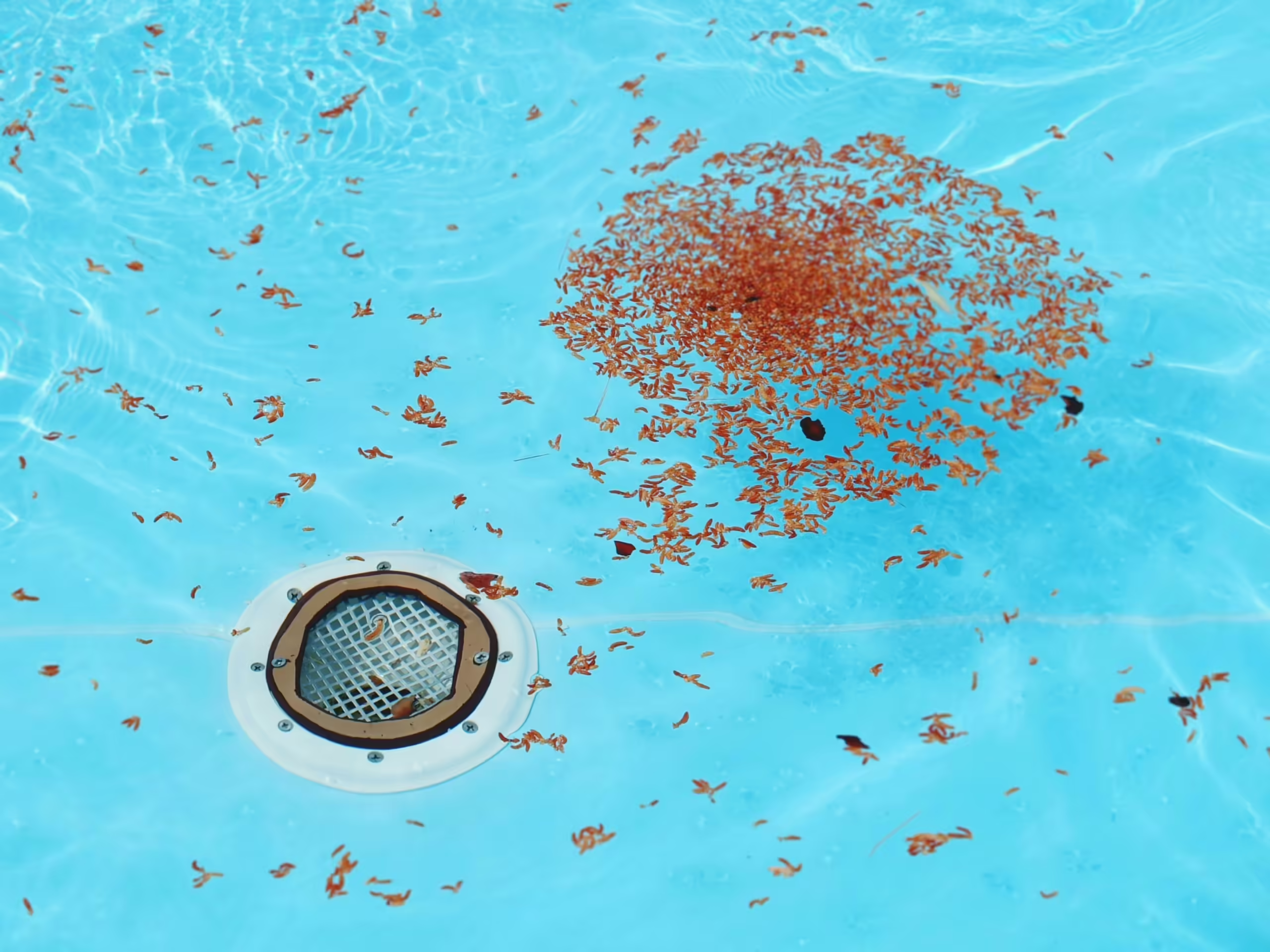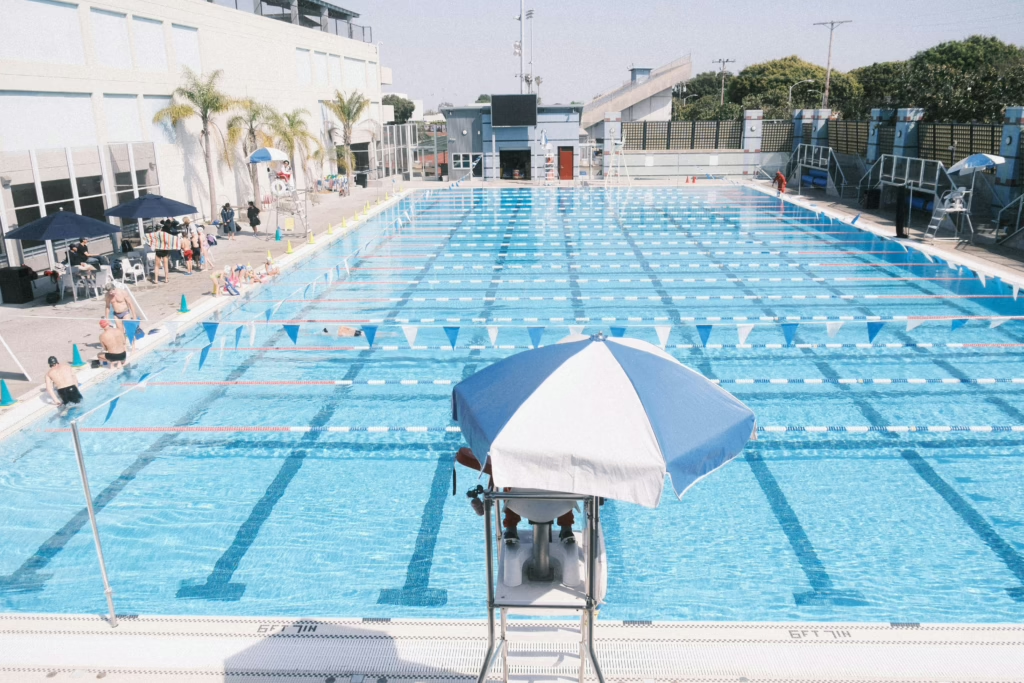Ugh, is there anything worse than jumping into your pool and feeling that unmistakable slime between your toes? Or watching your kids cannonball into water that’s… well, let’s just say “less than inviting”? I’ve been there. That cloudy water and slow drain aren’t just annoying – they’re your pool’s way of waving a big red flag that something’s up with your drain.
Look, I get it. When you search “pool drain cleaning near me,” you’re probably hoping for a quick fix that won’t break the bank. Maybe you’re wondering if this is something you could handle yourself this weekend with some YouTube guidance and a trip to the hardware store. After talking with countless pool owners (and making plenty of my own mistakes), I’ve put together this no-nonsense guide to help you figure out when to roll up your sleeves and when to call in the pros.
I promise you this – whether you’re the DIY champion of your neighborhood or someone who’d rather leave pool care to the experts (no judgment here!), understanding what’s really going on with your pool drain will save you a ton of headaches down the road. So grab your favorite drink, and let’s talk pool drains – I’ll try to make this as painless as possible!
Why Regular Pool Drain Cleaning Matters
Health and Safety First
Let me be real with you – that clogged drain isn’t just an eyesore. It’s basically a luxury apartment complex for bacteria and algae. I learned this the hard way when my nephew got that weird rash after swimming in my neglected pool. Those microscopic troublemakers love turning your refreshing swim into a petri dish experiment, causing everything from itchy skin to ear infections. And don’t even get me started on the suction hazards from poor drainage – especially terrifying if you have little ones splashing around.
Protecting Your Investment
Remember how much that pool installation cost? Yeah, me too (my wallet still hasn’t forgiven me). When your drains clog up, your poor pump starts working harder than a coffee maker on Monday morning. My neighbor ignored his drain issues for months and ended up shelling out nearly $1,200 for a new pump – ouch! Regular cleaning is basically cheap insurance for your expensive pool equipment.
Enhanced Swimming Experience
Hand on heart – have you ever actually enjoyed swimming in cloudy water? That moment when you can’t see your feet and wonder what exactly touched your leg? No thanks. When your drains are flowing freely, your water circulates properly, your chemicals stay balanced, and suddenly those pool parties you host become a lot more popular. Trust me on this one.
DIY Pool Drain Cleaning: What You Need to Know
Common Methods Worth Trying
Many pool owners successfully handle basic drain maintenance themselves. Here’s what typically works:
- Daily skimming to prevent debris from reaching the drain in the first place
- Using a garden hose to flush out minor blockages and improve water flow
- Employing a plumber’s snake for more stubborn clogs deeper in the drain line
- Carefully applying appropriate chemical cleaners (with caution to avoid damage)
Tools of the Trade
If you’re going the DIY route, arm yourself with the right equipment:
- A quality pool skimmer net for surface debris
- A wet/dry vacuum specifically designed for pool cleaning
- A plumbing snake of appropriate length for your system
- Protective gear including gloves, goggles, and non-slip footwear
The Real Risks You Should Consider
Before rolling up your sleeves, understand what you’re getting into:
- Without proper knowledge, you might inadvertently damage expensive pool components
- DIY cleaning often addresses symptoms rather than underlying problems
- Some cleaning methods can create safety hazards if not executed correctly
- Chemical cleaners, if used improperly, can damage drain components or throw off your water chemistry
Best Practices for Safe DIY Cleaning
Know Your System
Every pool has unique plumbing characteristics. Take time to understand your specific drainage system – read the manual, check with your pool builder, or consult resources specific to your pool model. This knowledge forms the foundation for effective DIY maintenance.
Safety First, Always
Never compromise on safety:
- Always turn off all pool equipment before attempting any drain cleaning
- Wear thick, chemical-resistant gloves and protective eyewear
- Avoid mixing cleaning chemicals, which can create dangerous reactions
- Have someone nearby when cleaning, especially when working with deeper drains
Work Methodically
Patience pays off when cleaning pool drains:
- Start with the least invasive methods before progressing to more aggressive techniques
- Clean one small section at a time for thoroughness
- Regularly check your progress and adjust your approach as needed
- Document what works for future reference
When to Call the Professionals
Red Flags That Scream “Expert Help Needed”
Some situations clearly warrant professional intervention:
- Water backing up despite your best DIY efforts
- Unusual noises coming from your pump or filtration system
- Multiple clogged drains suggesting a deeper systemic issue
- Recurring clogs that return shortly after cleaning
What Professional Pool Drain Cleaning Involves
Understanding what you’re paying for helps set proper expectations:
- Comprehensive system inspection using specialized equipment
- High-powered hydro-jetting that clears blockages without damaging pipes
- Professional-grade vacuums that remove debris beyond DIY equipment capabilities
- Expert assessment of potential underlying issues before they become major problems
The Value Proposition
Professional services might cost more upfront, but consider the full picture:
- Prevention of expensive equipment damage from improper DIY methods
- Time saved that you can spend actually enjoying your pool
- Peace of mind knowing the job was done right
- Long-term savings from proper maintenance that extends system life
Preventive Maintenance: The Key to Fewer Drain Problems
Daily Habits That Make a Difference
Small, consistent actions yield big results:
- Quick daily skimming to catch debris before it sinks
- Rinsing off before swimming to reduce oils, sunscreen, and other contaminants
- Maintaining proper chemical balance to prevent buildup and corrosion
- Checking and emptying skimmer baskets regularly
Seasonal Maintenance Checklist
Different seasons bring different challenges:
- Spring: Deep cleaning to remove winter buildup and prepare for heavy use
- Summer: More frequent checks during peak swimming season
- Fall: Extra vigilance against leaves and organic debris
- Winter: Proper winterization to prevent freeze damage and buildup
Smart Upgrades Worth Considering
Sometimes a small investment prevents major headaches:
- Modern drain covers with improved anti-clog designs
- Automated skimmers that continuously remove surface debris
- Secondary filter systems that reduce stress on your main drain
- Pool covers that dramatically reduce debris when the pool isn’t in use
Choosing the Right Professional Service
Questions to Ask Before Hiring
Not all pool services are created equal:
- How long have they been specializing in pool maintenance?
- Do they have specific experience with your type of pool and drain system?
- Can they provide references from long-term clients?
- Do they offer emergency services if a serious problem arises?
What a Comprehensive Service Should Include
Know what to expect from quality service:
- Thorough inspection of all drain components and related systems
- Clear explanation of problems found and recommended solutions
- Transparent pricing with no surprise charges
- Follow-up information on preventing future issues
Building a Relationship That Lasts
The best pool professionals become valuable partners:
- Regular service schedules customized to your pool’s needs
- Proactive recommendations based on your usage patterns
- Educational resources to help you better understand your system
- Responsive communication when questions or concerns arise
Frequently Asked Questions:
1. How often should I clean my pool drains?
I tell my friends to get professional drain cleaning at least once a year, with some DIY maintenance between visits. But if you’ve got kids doing cannonballs daily or your yard looks like a nature preserve with leaves constantly bombing your water, you might need the pros to swing by twice a year. My pool sits under three oak trees, so I’m in the twice-yearly club whether I like it or not.
2. What are the most obvious signs of a clogged pool drain?
Your pool will practically scream at you when drains are clogged. Listen for your pump making weird grinding noises (mine started sounding like a blender full of rocks). Watch for water that stays cloudy no matter how many chemicals you throw at it. If you notice debris gathering around drains like teenagers at a mall food court, or water coming out of your jets looks weaker than gas station coffee, it’s definitely drain time.
3. Can chemical cleaners damage my pool system?
Oh boy, can they ever! My buddy Dave thought any old drain cleaner would do and ended up replacing half his PVC pipes. The harsh chemicals in non-pool products will eat through plastic parts, corrode anything metal, and throw your water chemistry into chaos. Stick with pool-specific cleaners and follow the directions like you’re building a rocket ship.
4. How much does professional pool drain cleaning typically cost?
Here in San Diego, expect to shell out between $100-$250 depending on how complicated your system is and how badly it’s clogged. I personally found that signing up for a regular maintenance package saved me about 20% compared to one-off emergency cleanings (which, let’s be honest, were happening way too often before I got smart about this).
5. Do I need to drain my pool completely for drain cleaning?
Almost never, thank goodness. I panicked about this my first time, but the pros can typically work with your pool filled. Sometimes they’ll need to lower the water level a bit, but complete draining is usually only for major renovations or repairs. My last cleaning took about 90 minutes with minimal water level adjustment.
6. What’s the difference between main drain cleaning and skimmer cleaning?
Think of skimmer cleaning as doing the dishes, while main drain cleaning is more like calling a plumber for your house. Skimmers are those openings at water level that you can easily clean yourself – I check mine every few days. The main drain sits at the bottom of your pool and connects to your more complex plumbing. When that gets clogged, it’s usually time for someone with specialized tools and knowledge to help out.
7. Can a clogged drain damage my pool pump?
In a word: absolutely. It’s like trying to breathe through a straw while running a marathon. When drains clog, your pump struggles, overheats, and eventually gives up the ghost. My pool guy showed me a burnt-out pump motor from another client who ignored drain issues – it was a $800 lesson I’m glad I didn’t have to learn firsthand.
8. Is DIY drain cleaning safe for vinyl-lined pools?
If you’ve got a vinyl pool like my sister does, tread very carefully with DIY cleaning. Those liners tear easier than wet paper, and one wrong move with a sharp tool can lead to a very expensive repair. She learned this lesson with a small tear that cost $400 to patch. For vinyl pools, professional cleaning is usually money well spent.
9. How long does professional drain cleaning usually take?
Set aside about 1-3 hours depending on how gunked up your system is. My last cleaning was pretty straightforward and took about 75 minutes, but my neighbor’s neglected pool (no judgment, life gets busy) needed almost 4 hours of attention. The pros work pretty efficiently when they know what they’re doing.
10. Can regular brushing help prevent drain clogs?
100% yes! I brush my pool walls and floor twice a week, and it’s made a huge difference. It’s like flossing – not the most fun activity, but it prevents bigger problems. Brushing keeps algae from setting up camp and keeps debris floating so your filter can catch it before it sinks to the drain. 15 minutes of brushing saves hours of trouble later.
Final Thoughts
Look, I’ll be the first to admit that cleaning pool drains isn’t exactly the glamorous pool party I dreamed of when signing those ownership papers. There’s no Instagram filter that makes fishing hair clumps from a drain look cool (trust me, I’ve tried them all). But after 7 years of pool ownership – and learning most lessons the hard way – I can tell you it’s absolutely worth staying on top of this maintenance.
If you’re frantically Googling “pool drain cleaning near me” at midnight because your pool suddenly looks like a swamp, I’ve been there too. PoolLogic San Diego has bailed me out more than once with their no-nonsense service. Their techs don’t judge your neglected pool (much appreciated after my three-month “I’ll get to it next weekend” phase), and they can typically get everything assessed and scheduled with just a quick 5-minute call. My guy Mark was in and out in under two hours, and my pool went from embarrassing to enviable practically overnight.
Ready to stop worrying about what’s lurking in your drain? Take it from someone who once found an entire palm frond clogging their system – that phone call is worth making. Your future self will thank you while floating peacefully in crystal-clear water, and your pool equipment will keep humming along instead of becoming an unexpected expense. Now if you’ll excuse me, it’s 85 degrees, my pool is sparkling, and there’s a float with my name on it calling my name!



